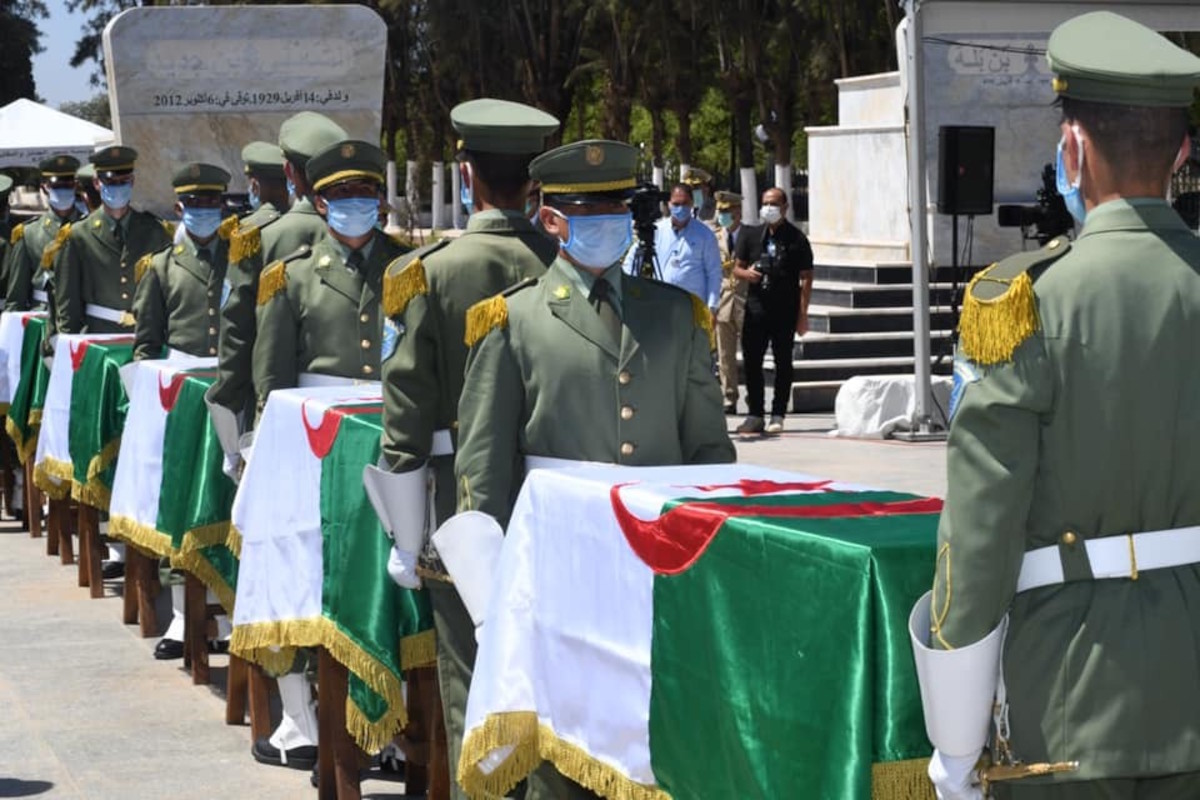Our Week in Review, a newsletter emailed to subscribers every Friday. To subscribe, sign up here.
I know I shouldn’t be, but I find myself constantly astounded while reading stories about colonialism and the atrocities carried out by European powers in their colonial holdings. The French in particular, for a nation so committed to proclaiming the superiority and elegance of its cultural heritage and enlightenment value, never cease to amaze me.
We ran an essay last summer about France’s nuclear experiments in Algeria. France detonated its first atomic bomb in February 1960, exposing over 24,000 people to radiation. To date, France hasn’t disclosed the real toll of contamination, nor has it revealed the location coordinates of all testing sites and nuclear waste, which it dispersed in different areas or merely buried a few feet underground.
In the course of editing an essay about the Central African Republic, which we’ll publish in the coming weeks, I learned that in the early 20th century French explorers relied on slave labor in CAR, Chad and the Republic of Congo and adapted brutal policies based on Belgium’s atrocities in Congo, awarding concessions to private companies that then committed crimes against humanity in their pursuit of profit.
We have become inured to these accounts because of the brutality of the wars that continue to take place in the region and beyond. But one aspect of colonialism that feels especially cruel to me is the attempt to erase one’s sense of self and culture as a form of collective punishment or in service of a “civilizing” mission.
The thought occurred to me while reading a fascinating essay this week on “The Algerians of New Caledonia,” which was written by Chahrazade Douah, a French-Algerian writer based in Cairo, and Mélissa Godin, a Canadian journalist based in Paris.
New Caledonia lies 11,000 miles from Algeria, a French territory in the South Pacific that is, culturally and geographically, worlds away from the North African city of Algiers.
The essay deals with a little-known historical episode. In January 1871, 40 years after the French seized control of Algeria, the Kabyle people, an Amazigh ethnic group, banded together to lead what was at the time, the biggest revolt against French occupation in Algerian history.
The revolt was met with typical French colonial brutality and mass atrocities, followed by a mass trial of 2,000 insurgents who led the revolt. Rather than risk further instability by executing the men, many of whom hailed from noble families, they exiled them to the farthest point possible — to New Caledonia. There they hoped they would assimilate with locals, slowly losing their religious and cultural affinities, and forget their roots.
The end result was more complicated of course. Rather than lose their cultural beliefs, many of the women the men married from local communities ended up converting to Islam, for instance. But the overarching trend was set. Their children, grandchildren and great-grandchildren often knew little of what brought their progenitors to this distant land.
Douah and Godin zeroed in on the story of Christophe Sand and his journey to discover his roots in Algeria. Sand’s grandmother had believed for most of her life that her grandfather was a criminal.
“In New Caledonia, the descendants of these communities had their cultural memories eradicated,” he said.
Douah and Godin continue: “In the early 2000s, documentary filmmakers came to New Caledonia to interview the descendants of the revolt leaders. They brought a book with them about those exiled from Algeria. In it, Sand found the forgotten story of his great-great-grandmother Tessadit who, upon learning her son would be exiled to New Caledonia, ran down to the port of Algiers to beg a soldier to let her say goodbye one last time. ‘They gave her 30 seconds,’ Sand said. ‘That’s inhumane.’”
The story culminates with Sand’s visit to his hometown, with this moving passage: “Sand visited the small home where his great-grandfather was born and touched the floor where, as per tradition, his umbilical cord was buried. When Sand emerged from the house, onlookers told him: ‘Son, your face has changed.’”
From this week (May 02 – May 06, 2022)
Where Does the North Begin? | Read more
Podcast: A Life in Translation – with William Hutchins | Listen here
How Close Did Israel Come to Peace with Syria? | Read more
Yemen’s Great Enabler Departs | Read more
Counting the Dead in Ukraine | Read more
A Terrible Drought Overtakes Kenya | Read more
The Algerians of New Caledonia | Read more
Mullah Omar’s Enduring Legacy | Read more



